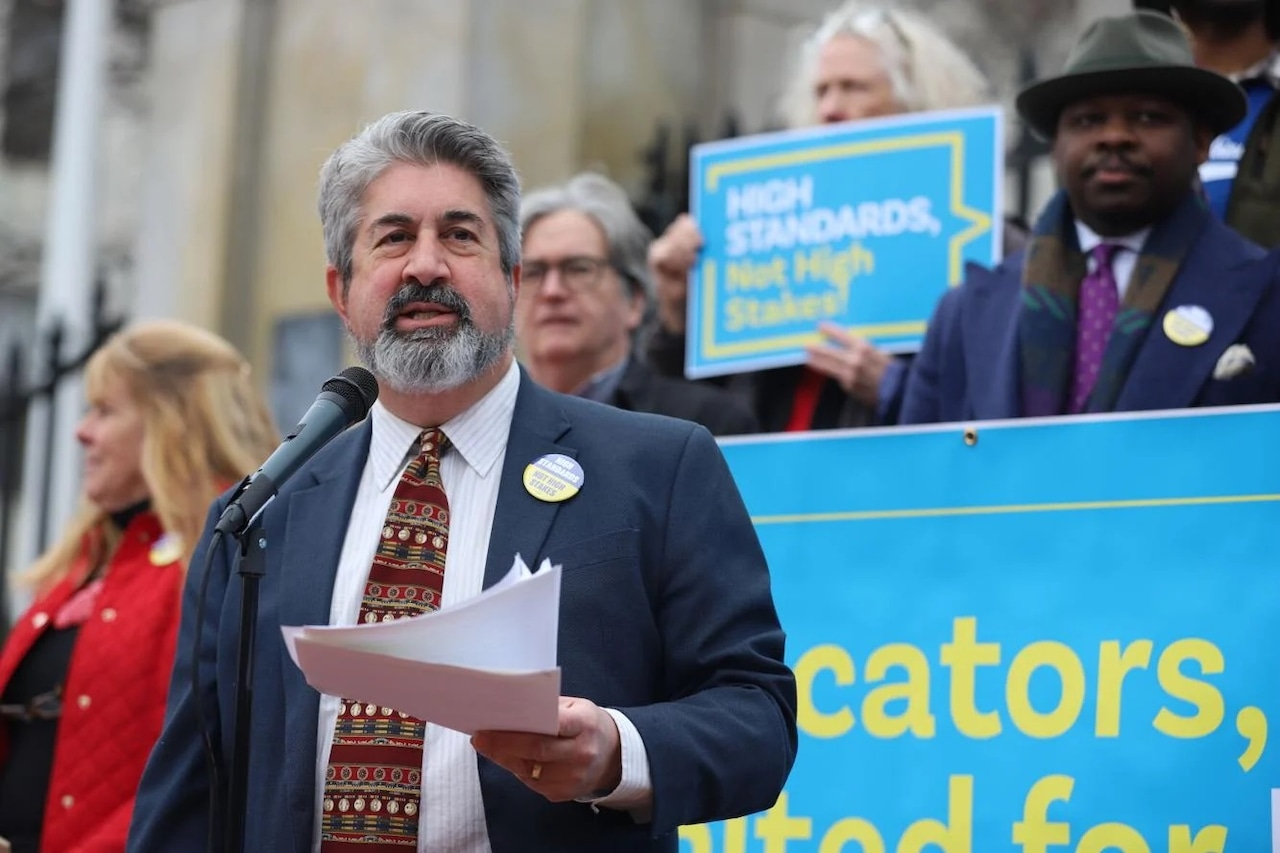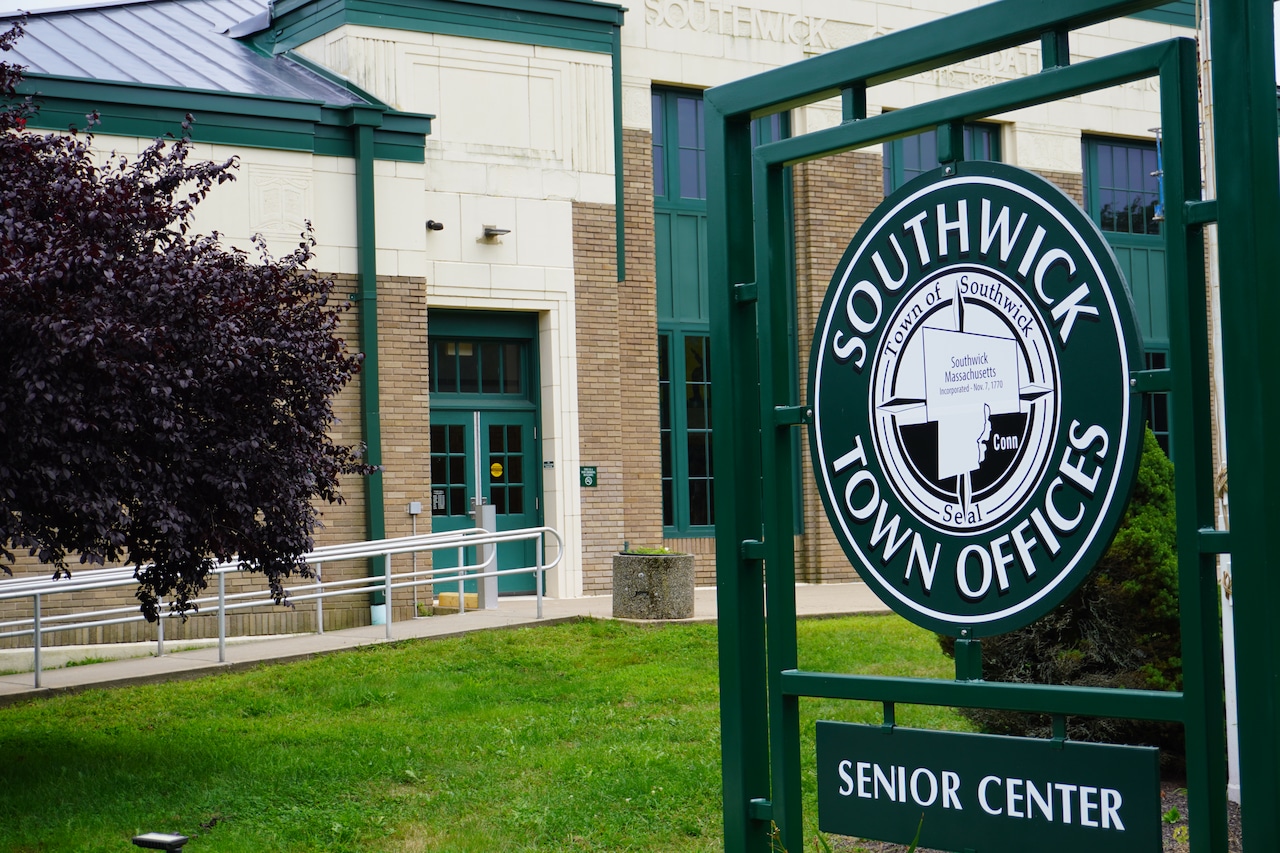
SPRINGFIELD – One longterm teacher worries children will be left behind if voters eliminate the MCAS graduation requirement in November’s election. A second educator says children are already left behind because of the test.
Both agree that even if voters back Question 2 on Nov. 5, the MCAS test itself is here to stay.
Max Page, president of the Massachusetts Teachers Association, which endorsed eliminating the MCAS graduation requirement, and Cynthia Agruso, a math teacher who believes it should remain, discussed the pros and cons of the ballot question during a forum Wednesday night sponsored by the Forest Park Civic Association.
A yes vote on the ballot question will end the practice of requiring high school students to pass the Massachusetts Comprehensive Assessment Systems exam, better known as MCAS, to receive a high school diploma. A no vote will continue the current practices.
“I want people to know 117,000 educators see it as a top priority to get rid of the graduation requirement,” said Page, of Amherst. “What we are eliminating is the high stakes punitive element that denies students a diploma if they complete all other requirements.”
But Agruso, an Agawam Junior High School educator who has taught every grade level from kindergarten through eighth grade, said she was opposed to the MCAS when it first came out, but now sees its value.
Eliminating the graduation requirement, she said, would lower the achievement bar for youth. In addition, the test results provide valuable data for teachers and students in understanding how to improve education.
“If this bill goes through there will be no replacement,” she said. “We have more than 300 different districts in the state and it will leave us with 300 different (graduation) requirements.”
The only state standard for graduation is to pass the MCAS exam and complete four years of physical education. With the MCAS requirement, Agruso said, some school districts will have strict requirements such as passing four years of math, science and English. Others will just say students must earn a certain number of credits, she said.
But Page argued the MCAS will still be given to students, data will still be provided to teachers and state curriculum standards will still have to be followed. The only difference? Students who complete all their graduation requirements will not be denied a diploma if they do not pass one test.
“Our core argument is it is bad for students,” he said. “It is not a good test to determine what students really know.”
While Agruso argued the graduation rate has increased and the dropout rate decreased since the creation of the MCAS, Page said studies show that students who fail the MCAS their first time are more likely to drop out before they reach their senior year.
About 700 of the state’s 70,000 high school seniors each year who otherwise meet graduation requirements do not pass the MCAS in the multiple opportunities they have to take it before the end of their senior year. Agruso said people continue to talk only about the 1% who fail.
“Ninety-nine percent of our students are doing what they need to do, 1% needs a little help and we need to find out [how] to get them to the finish line,” she said.
When audience members were invited to ask questions, more than a half-dozen stepped up. They wanted to know how school performance will be evaluated without the MCAS. What’s the cost of giving the test? Will a diploma will be devalued without MCAS? How should schools deal with student stress over the exam?
One audience member listed a series of Black inventors and asked the two panelists to identify their accomplishments. When they couldn’t, he questioned why state standards decide some things should be taught and others are unimportant.
Page agreed with him and said the MCAS is also limited as a test.
“It only assesses a small percentage of our state standards,” he said. Skills the state finds valuable, such as ability to speak in public and write a report, aren’t on the test. There has never been a section testing knowledge of history and social studies.
Christine Plumb said she had mixed feelings about Question 2 and attended the forum to learn more so she could decide how to vote.
“If we pass this without an alternative, I don’t know where this will leave us,” she said.
The forum confirmed for Angela Park that voting to eliminate the MCAS requirement is the right choice for her.
Her children graduated from Springfield Public Schools and are now in college and law school, but she runs a before and after-school program where she teaches the arts, music and dance. She sees the stress MCAS puts on children.
“I was always against the MCAS,” she said. “There are a lot of things we miss teaching our kids like the arts because of the focus on MCAS.”





